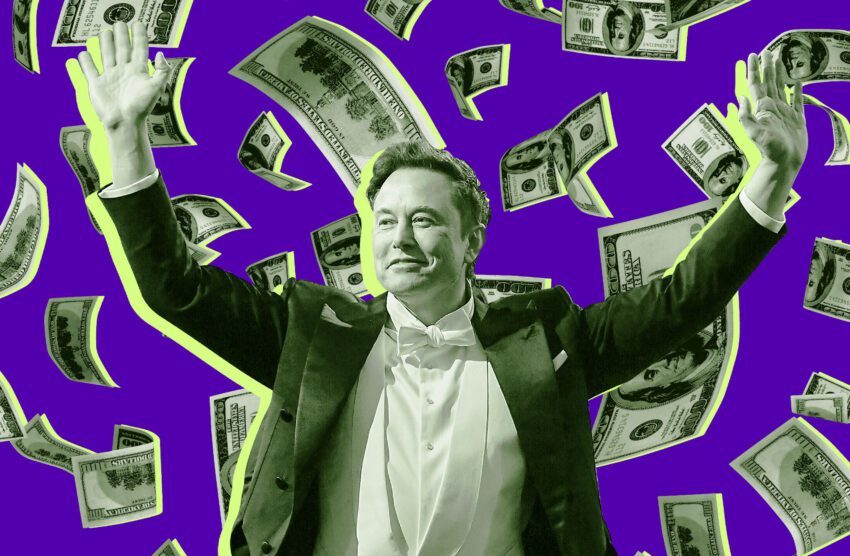
tesla shareholders approve elon musk s 1 Tesla shareholders have voted overwhelmingly to approve Elon Musk’s unprecedented pay package, a decision that underscores the company’s reliance on its controversial CEO during a tumultuous period.
tesla shareholders approve elon musk s 1
Shareholder Approval and Its Implications
On Thursday, Tesla shareholders cast their votes, with over 75 percent of shares in favor of Musk’s staggering new compensation plan. This approval not only solidifies Musk’s position at the helm of the electric vehicle (EV) manufacturer but also grants him the largest corporate payout in history, a staggering $1 trillion package. The final vote tally will be disclosed in a Securities and Exchange Commission (SEC) filing in the coming days, providing further insight into the shareholder sentiment surrounding this decision.
The approval of this pay package significantly enhances Musk’s influence over Tesla, increasing his stake in the company from approximately 15 percent to about 25 percent. This substantial increase in ownership aligns Musk’s financial interests even more closely with the company’s performance, which may be seen as a double-edged sword by investors and analysts alike.
Details of the Pay Package
The proposed pay package, which was initially put forth by Tesla’s board in September, is contingent upon Musk achieving a series of ambitious milestones. These include:
- Raising Tesla’s market capitalization from its current $1.5 trillion to $8.5 trillion within a decade.
- Deploying 1 million robotaxis.
- Selling an additional 12 million vehicles.
- Acquiring 10 million Full Self-Driving subscriptions.
- Producing 1 million humanoid robots.
These targets are not merely aspirational; they represent a significant leap in Tesla’s operational and financial capabilities. Achieving them would require not only technological advancements but also a robust market strategy in an increasingly competitive landscape.
Concerns from Major Shareholders
Despite the overwhelming approval from shareholders, the vote was not without dissent. Some of Tesla’s largest shareholders, including Norges Bank Investment Management, which manages Norway’s sovereign wealth fund, expressed their opposition to the pay package. Smaller public pension funds, such as the American Federation of Teachers and various New York City retirement systems, also voiced concerns. Major proxy advisory firms, including Institutional Shareholder Services and Glass Lewis, recommended against the proposal, citing issues related to governance and the potential for excessive compensation.
The opposition highlights a growing concern among investors regarding the governance structure at Tesla. Critics argue that the board lacks sufficient independence from Musk, which raises questions about the appropriateness of such a large compensation package. This sentiment is not unfounded; a Delaware court invalidated Musk’s previous compensation package, valued at over $50 billion, after determining that Tesla’s board did not operate with adequate independence from the CEO. Although shareholders had approved the package twice, the court’s ruling has led to ongoing legal battles, with Tesla appealing to the Delaware Supreme Court.
Strategic Moves Amid Legal Challenges
In light of the legal challenges surrounding his previous compensation, Musk has taken steps to reposition Tesla’s legal home from Delaware to Texas, a move that shareholders also approved. This shift is seen as part of Musk’s broader strategy to regain control and influence over the company’s governance and operational direction.
The Broader Context of Tesla’s Challenges
While the approval of Musk’s pay package may provide short-term stability, it comes at a time when Tesla faces significant challenges. The board has been vocal about its belief that Tesla is on the brink of becoming a leader in artificial intelligence (AI) and robotics, necessitating Musk’s steady leadership. However, the reality is more complex. Tesla’s market position is increasingly precarious, with several factors contributing to its current challenges.
Market Pressures and Competition
One of the most pressing issues is the growing competition from other automakers, particularly those in China. As traditional automotive companies pivot to electric vehicles, Tesla’s market share is being eroded. The influx of new entrants into the EV market has intensified competition, forcing Tesla to innovate rapidly while managing its existing resources effectively.
Additionally, Musk’s controversial political affiliations and actions have sparked public backlash, impacting Tesla’s brand image and sales. His support for former President Donald Trump and involvement in initiatives aimed at reducing federal workforce numbers have led to protests and a decline in consumer sentiment. The expiration of the federal EV tax credit is anticipated to further exacerbate sales challenges, as consumers may be less inclined to purchase EVs without the financial incentives previously available.
Technological Aspirations vs. Reality
Whether Musk can achieve the ambitious goals outlined in his new pay package remains uncertain. Tesla recently launched its first robotaxi service in Austin, Texas, but the rollout fell short of Musk’s earlier predictions. The service still requires safety monitors, either in the driver or passenger seat, which contradicts Musk’s vision of fully autonomous vehicles. He has suggested that these monitors could be removed by the end of the year, but skepticism remains regarding the feasibility of this timeline.
Moreover, Tesla’s only new product since 2020, the Cybertruck, has been met with mixed reviews and is often considered a consumer flop. The delay in its release and the lack of significant new offerings have raised concerns about Tesla’s ability to maintain its innovative edge in a rapidly evolving market.
Stakeholder Reactions and Future Outlook
The approval of Musk’s pay package has elicited a range of reactions from stakeholders. While many shareholders view it as a necessary step to retain Musk’s leadership, others are wary of the implications for corporate governance and long-term sustainability. The divide among investors reflects broader concerns about executive compensation and accountability in the tech and automotive sectors.
As Tesla navigates these challenges, the company’s future will depend on its ability to execute on the ambitious goals set forth in Musk’s pay package. Achieving a market capitalization of $8.5 trillion and deploying a million robotaxis are not just lofty aspirations; they represent a fundamental shift in Tesla’s operational strategy and market positioning.
Conclusion: A Pivotal Moment for Tesla
The approval of Elon Musk’s $1 trillion pay package marks a pivotal moment for Tesla, encapsulating the complexities of corporate governance, shareholder interests, and the challenges of maintaining a competitive edge in the electric vehicle market. As the company moves forward, the eyes of investors, analysts, and consumers will be closely watching to see if Musk can deliver on the ambitious promises that underpin this unprecedented compensation plan.
Source: Original report
Was this helpful?
Last Modified: November 7, 2025 at 3:35 am
1 views















